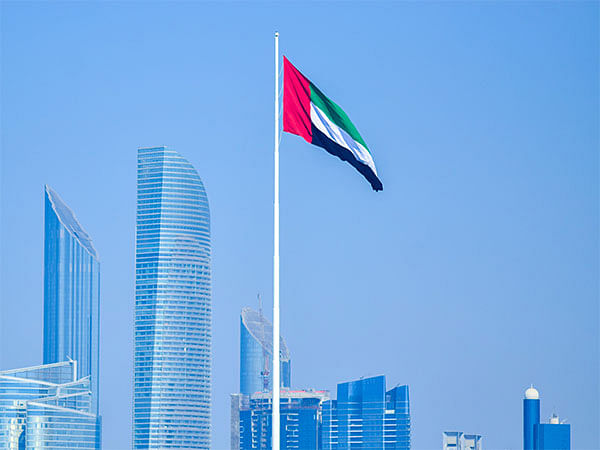Dubai [UAE], July 1 (ANI/WAM): Salem Al Zaabi, Advisor to the Minister of Foreign Affairs of the United Arab Emirates, called on the international community to address the root causes of intolerance and extremism, including countering disinformation on the internet and social media.
Al Zaabi, who led the UAE’s delegation to the biennial United Nations Counter-Terrorism Week that took place from June 19-23, was accompanied by Dr Mohamed Al Kuwaiti, Head of the UAE Cyber Security Council. Al Zaabi delivered the UAE’s statement during the general debate on the UN Global Counter-Terrorism Strategy.
“Terrorism is a complex, multi-faceted, and global phenomenon that transcends borders, cultures, and religions, and effectively preventing and countering it requires a multilateral and multi-pronged approach,” he said. “We urgently need to address intolerance and extremism more effectively before these behaviours escalate to acts of terrorism and armed conflict. Prevention strategies must be recalibrated to reflect this pressing reality.”
In his statement, Al Zaabi highlighted the UN Security Council’s unanimous adoption of a resolution, co-penned by the United Arab Emirates and the United Kingdom, on “Tolerance and International Peace and Security”. The resolution is the first of its kind to recognise that hate speech, racism, and extremism can drive the outbreak, escalation, and recurrence of conflict.
The delegation and Ambassador Lana Zaki Nusseibeh, UAE’s Permanent Representative to the United Nations in New York, engaged with other UN Member States and international counter-terrorism partners on critical counter-terrorism topics throughout CT Week.
The UAE hosted a discussion on terrorist groups’ acquisition, weaponisation, and deployment of Autonomous and Remotely Operated Systems (AROS), which also saw the launch of a UAE-sponsored report from the UN Office of Counter-Terrorism and Conflict Armament Research. Al Zaabi said that the report seeks to raise awareness of the dangers of proliferating AROS and their potential misuse by terrorists, and enhances the preparedness of Member States to prevent and counter the threats posed by Unmanned Aircraft Systems.
Ambassador Nusseibeh, in her role as Chair of the UN Security Council’s Counter-Terrorism Committee, co-chaired a UN discussion entitled “Global Threat Landscape: Assessment of Current and Emerging Trends” with the Permanent Mission of Albania to the UN. As Chair, she met with the delegations of Iraq and the Russian Federation. The UAE delegation also met with the delegations of India and the United States.
The UAE convened a discussion with India on multilateral responses to curb the misuse of digital tools by terrorists. Dr Al Kuwaiti highlighted how the UAE’s work is strengthening information security, and the UAE’s “Cyber Pulse” programme, which raises awareness of cyber threats and increases digital security. (ANI/WAM)
This report is auto-generated from ANI news service. ThePrint holds no responsibility for its content.






